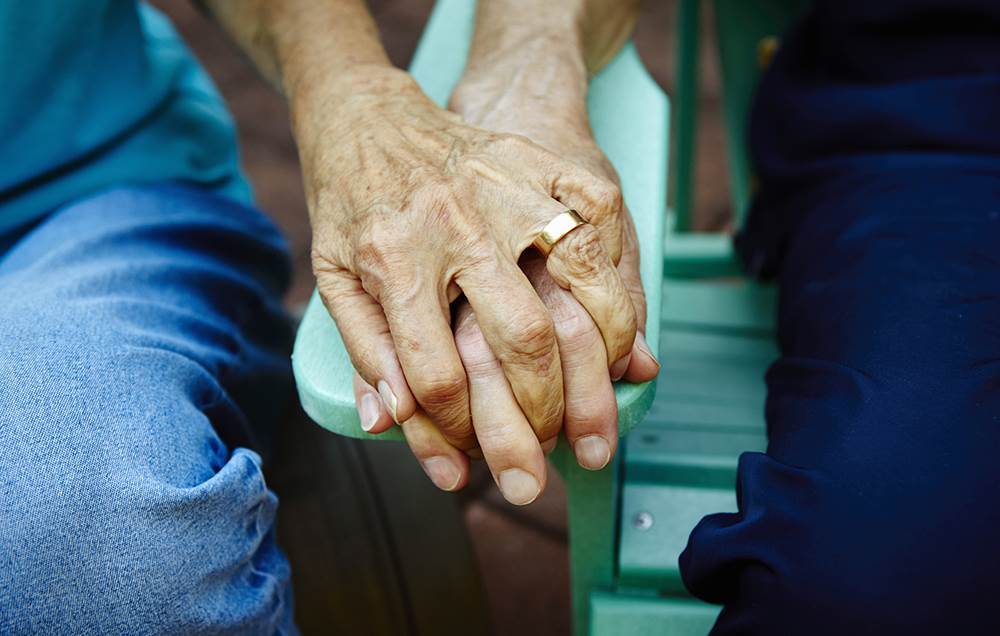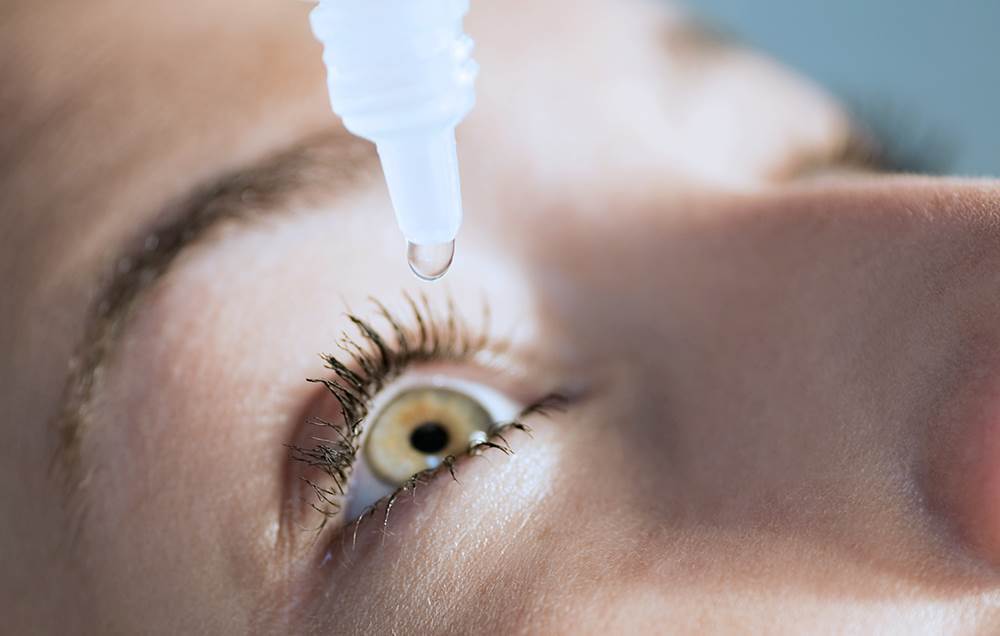Most people think arthritis only affects those hovering around retirement age. But rheumatoid arthritis, a chronic inflammatory disorder, can actually strike those in their 20s or 30s. And unlike some other rheumatic diseases, the side effects of the condition extend beyond joint pain and stiffness.
With rheumatoid arthritis, the immune system attacks the lining of the joints, causing pain and swelling, as well as less-talked-about symptoms like extreme fatigue and rashes—and that's just the tip of the iceberg. Here's what it's really like to live with rheumatoid arthritis:






You feel like you’re coming down with a cold. All. The. Time.
In the beginning, rheumatoid arthritis often manifests as stiffness and tenderness in the hands, wrist or feet. But because early symptoms may also mimic other conditions, it can take a while for doctors to diagnose.
"It took about six months to get diagnosed. During that time, I felt like I was constantly fighting a cold. I had muscle aches, red, hot, swollen joints and extreme fatigue." —Jennifer Maggiore, 39
"The joints in my fingers, wrists, jaw, ankles and feet were constantly in pain. I also had an overwhelming feeling of exhaustion that sleep didn't help with." —Staci Penner, 43
You never know what’s in store.
Imagine being A-OK in the afternoon and feeling like a tonne of bricks hit you by nighttime—with barely any warning. That's how rheumatoid arthritis manifests in some people.
"I had a joint in my arm that would get so inflamed that within a few hours, I couldn't lift a cup of coffee." —Susan Abdo, 57
"My symptoms can vary from day to day or even hour to hour, and may also fluctuate in severity. There are days I can go on a three-hour bike ride, and there are other days I can barely wash my hair." — Ashley Boynes-Shuck, 33
"Sometimes I feel like there's a cement wall in front of me that I have to push away. I feel like I'm a 75-year-old in a 36-year-old's body." —Angharad Chester-Jones, 36
Getting pregnant may make symptoms better or worse.
It's impossible to predict what will happen, but the odds are in your favour. From the beginning of the second trimester to six weeks after delivery, symptoms improve for about 70% of women with rheumatoid arthritis, says rheumatologist J. Bruce Smith.
"When I was pregnant with my third child, I went off all my medication and had very few symptoms until a few months after birth. But when I was pregnant with my fourth child and stopped taking my medication, I had a very rough time with my RA symptoms. However, I was unwilling to risk taking the medication. I sustained some joint damage during that pregnancy but was able to calm the symptoms after going back on medication after the birth." —Brittney Hanks, 32
It can feel socially isolating.
Since RA causes pain and stiffness, it can pose daily challenges for people, including reduced mobility, a factor that can limit social interactions. It's also difficult for those without rheumatoid arthritis to fully understand what their loved ones with the condition are going through, which can cause feelings of isolation. In fact, about 35% of rheumatoid arthritis patients report feeling lonely, according to one Clinical Rheumatology study.
"There are times that rheumatoid arthritis has made me feel so isolated and alone. I went from being a person who felt she could do anything to not knowing from day to day what I'll physically be able to do. When my ankles and feet are affected, I can't go on walks with my family or even make it down the stairs to the kids' bedrooms. I can't sit next to my husband of 26 years and hold his hand with our fingers laced together because it hurts too much." —Staci Penner, 43
"Dating has been touchy. I often push potential partners away for fear of them not being able to handle or understand my condition." —Angharad Chester-Jones, 36
You feel like your health is spiraling out of control.
Rheumatoid arthritis puts patients at higher risk for other health problems. According to the Arthritis Foundation, having RA doubles the risk of cardiovascular problems like heart attack and stroke. And because rheumatoid arthritis is an inflammatory condition, it can cause inflammation to develop throughout the body, causing conditions like Sjogren's syndrome (an immune system disorder) and various lung diseases. In fact, the risk of developing lung disease is eight times higher in people with RA, according to the Arthritis Foundation.
"In addition to problems with every joint, I have several health issues caused by rheumatoid arthritis. Eye inflammation, frequent fevers, rashes, irregular blood pressure and shortness of breath are just a few." —Kelly Young
"One of the other issues with rheumatoid arthritis is that you're more likely to develop another autoimmune disorder. I have Sjogren's syndrome, which has caused severe eye dryness." —Cathy DiFalco, 62
"I started having more joint pain when I started taking birth control pills, and I recently developed an autoimmune liver disease." —Angharad Chester-Jones, 36
But some people feel stronger than ever.
Maintaining a positive outlook helps. In fact, depression has been declining in rheumatoid arthritis patients over the past few decades. One Dutch study found that patients diagnosed between 2004 and 2008 were about 15% less likely to be depressed than those who learned of their condition in 1990. Earlier diagnosis, more intensive interventions, along with recommendations to remain physically active may be to thank, say researchers.
"I try to be strong willed and strong minded. I advocate for myself and fight through everyday pain to lead as normal a life as possible." —Angharad Chester-Jones, 36
"When I was first diagnosed, I thought it meant that my life would change for the worse. But instead, it has helped me focus on what's important and made me realise how resilient and determined I am." —Jennifer Maggiore, 39
"The illness has made me stronger emotionally. I know with discipline, patience and determination I can achieve any goal I set my mind to." —Susan Abdo, 57










